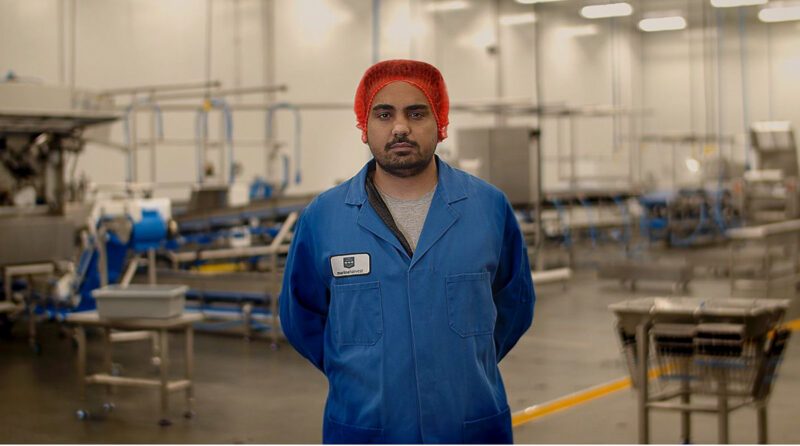Surrey pushes for pause on salmon farm closures
Town Hall on salmon farm closures in the remote Discovery Islands paints bleak picture of lost businesses, jobs and family livelihoods in Surrey, BC’s urban hub for the aquaculture industry.
By Fabian Dawson
SeaWestNews
The Surrey Board of Trade is calling on Ottawa to put a pause on its sudden decision to phase our salmon farms in BC’s Discovery Islands after hearing of the significant economic pain and job losses the city will suffer because of the closures.
In a town hall organised by the Board, aquaculture-related businesses in BC’s second largest city said hundreds of jobs and millions in investments are on the line and called for more dialogue with Federal Fisheries Minister Bernadette Jordan.
The Surrey Town Hall on the salmon farming industry provided a disheartening and clearer perspective on lost businesses, jobs, family livelihoods in Surrey, said Anita Huberman, CEO of the Surrey Board of Trade.
“The Surrey Board of Trade will continue to call for a pause on this decision…It is clear that the salmon farming industry wants to work on a win-win solution, but communication and dialogue are necessary between the industry and the government,” she said.
The pre-Christmas decision to phase out salmon farms in BC’s Discovery Islands was made by Minister Jordan, despite her own scientists saying that the marine operations pose less than a minimal risk to wild fish migrating through the area.
She also ignored her deputy minister’s recommendation for a more coordinated approach to the closures, which was primarily pushed for by anti-fish farm activists.
The fish farmers have applied for a judicial review of the minister’s decision and have already won an injunction allowing them to continue transferring their salmon into the ocean farms pending a Federal Court ruling on the entire planned phase out by June 2022.
The minister, has been ordered by the Federal court to “turn back the clock” on her decision and allow the transfer of fish pending a final ruling, but she has come up with new policies to thwart what the court had ordered her to do.
“We’ve never said that we’re asking the government to reverse this decision,” John Paul Fraser, Executive Director of the B.C. Salmon Farmers Association (BCSFA), told the town hall.
“It went through a process – by all accounts, an incredibly flawed process – but it made its decision. What we’re asking for the government is to give this decision an appropriate consideration, and that can start actually with stopping the clock.”
Fraser said the industry needed five years to “work itself through so that you minimize damage to people and to animals.”
In a report, the BCSFA estimated that the devastating economic fallout triggered by the closures of salmon farms in the remote Discovery Islands will likely kill 344 jobs in Surrey, “the hub of salmon farming in Metro Vancouver.”
In addition, the city risks losing $220 million in annual revenue, $46 million in GDP and $24 million in annual salaries, said the report, prepared by Doug Blair, a veteran economist and President of RIAS Inc.
In its entirety, Minister Jordan’s unexpected Discovery Islands’ decision will see BC losing almost $390 million in annual economic output with $87 million less in annual salaries and benefits, and 1,535 fewer jobs, mainly in coastal communities of BC, according to industry estimates.
Dean Dobrinsky, a spokesperson for Mowi Canada West, which operates most of the salmon farms in the Discovery islands and a processing plant in Surrey employing 72 workers said Minister Jordan’s decision has forced the company to stop over $110 million in new investments.
“Tragically we no longer have 50 employees and this is just the beginning…we have had to kill one million fish or the equivalent of 18 million high quality protein meals,” said Dobrinsky.
“We got an injunction and the minister rewrote the rules again and we now face the killing of another 100,000 to 500,000 fish in the upcoming weeks.
Mowi’s three-year-old, $8.2 million dollar fish processing plant on 152nd Street in Surrey produced 30 million meals last year without a single COVID-19 exposure incident.
“This minister and the government by their actions and by their silence continue to demonstrate a complete lack of respect for the people of Vancouver Island and Surrey and we need to change it very quickly as real damage has happened and will continue to happen,” he warned.
Ravi Jouhal, General Manager, of SureCold Refrigerated Storage said his Surrey operations handles 10 million pounds of farmed salmon every month with 35 fulltime employees
“Most of them call Surrey their home…I feel like my own government is working against me,” he said.
“To go from being told you are an essential service to then being told that a third of us may no longer be needed is very disappointing.”
Josh Plamondon, CEO of Aquapak in Surrey, has two operations in the city employing about 130 full-time workers who are integrated in various aspects of the aquaculture industry.
“This decision has left a lot of uncertainty with our staff – they’re really concerned about what the future of our business holds.”
“For us it feels like we’re driving a car but we’re stuck in neutral,” Plamondon said. “That’s a scary thing when we’re responsible for people’s jobs and livelihoods.”
Nav Nijjer, the owner of Shoreside Workforce, which provides workers for the aquaculture industry said: “This decision happened so fast; it’s already starting to impact my people working in fish processing.
“I think the biggest thing for us is the uncertainty that it brings for our Surrey workers…We haven’t been given any information and now my people are left wondering if they’ll have a job in a few months.”.
(Image of employee at Mowi’s fish processing plant in Surrey courtesy of Mowi Canada West)

